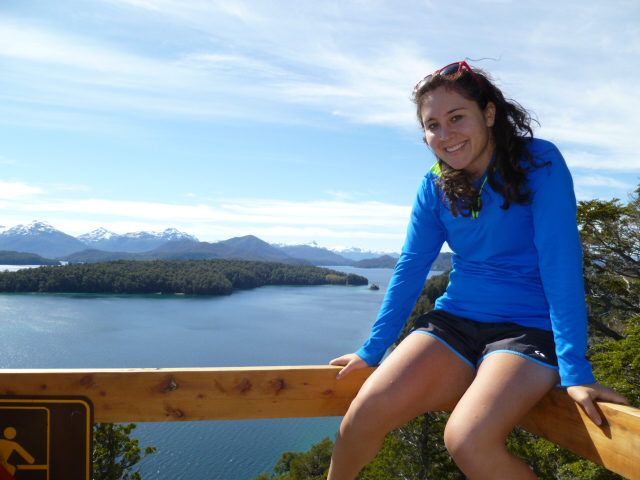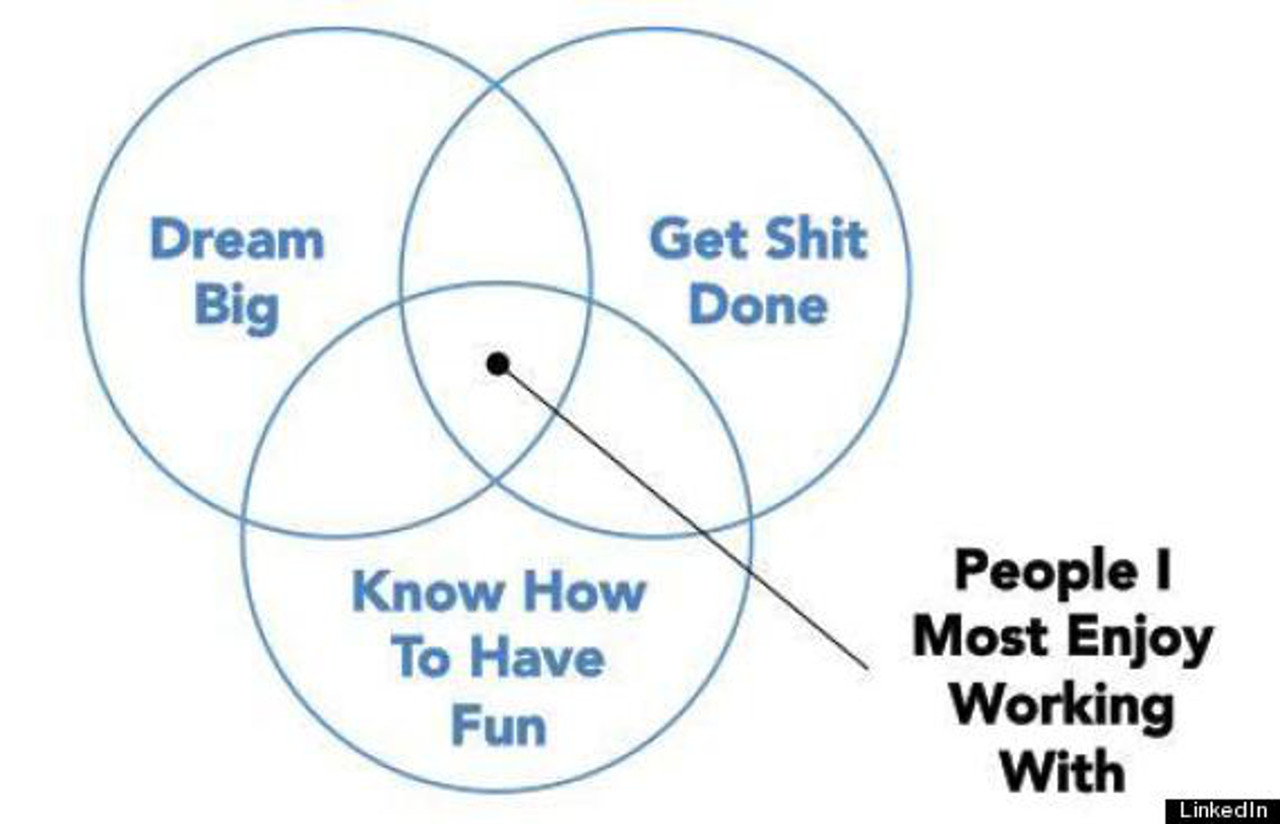Interview with Susie Becker, Stay-at-Home Parent now Residential Life Area Coordinator who returned to work for her former campus after six years being home.
I recently returned to work on a university campus after being home with my twin daughters and son for two and half years. As I prepared for my first day, I reached out to one of my own graduate school cohort members Susie Becker. I’ve reached out to her before when I first became a stay-at-home parent. She too had worked in student affairs, then became a stay-at-home parent. She is now the Area Coordinator in Residence Life at Seattle Pacific University. We both think about life experiences in similar ways. When she returned to work last year, I knew I wanted to interview her one day. With myself returning to work, I decided now was the time. This past week, she took sometime to reflect on her experience of returning to campus after being home with her children. They are now six and three. She was able to be home for six years and work last two of those six at home.
In my questions to her, I was looking for that reassurance that I wasn’t the only one who had a career in student affairs, decided to stay home with their kids, and then return to work when I was ready. That even though I feared what others would think of me since they had moved further along in their careers, she let me know there was no reason to worry. Everything works out. Her responses assured me and I know other stay-at-home parents would agree that our time at home brings new knowledge and skill sets. That where we arrive next is where we are meant to be. And the best way to tackle the lunch fiasco with three kids is on Sunday, aim to pre-pack all the fruit and veg for the week.
CafeVic: Susie, so great to hear from you. My first question for you is how did you know you were ready to return to work or did an opportunity come to you?
Susie Becker: I didn’t really make the choice to stay home. It was a financial decision. Childcare costs are very high in our area. I would say that I was always ready to return to work, but the right position had not come along yet. When the area coordinator position came along it was a perfect fit for my skills and interests.
CV: You returned to the university you worked at before you stayed home. What was that like and how had it changed? And then, how had you changed?
SB: I was very excited to return to work at SPU. I had already worked in residence life there and the area coordinator position had recently been created, so I was excited for the opportunity for a new challenge, but at an institution that I already knew and loved. It was the perfect opportunity to take the next step up in my career after being out of the field from several years.
I would say that missing out on opportunities to advance my career weighed heavily on my mind during the years I was working in the home. I feared that it would be nearly impossible to get back into the field, so I feel extremely blessed that this opportunity presented itself.
Having worked at SPU off and on for the last 15 years, in someways many things had changed, but a lot had stayed the same. Most of the people from within my department had changed, not only just different people, but I was all of a sudden the oldest person in my department! Many people from other departments were almost the same. That was nice when entering back in and settling back into working relationships with those folks. It was nice to know who to call when something needed fixing or if you wanted to do a program with someone you had already worked with previously, it just made the transition back a little smoother. It also made my learning curve a little less steep.
Student culture had shifted, but for the most part a lot was the same. Relating with students was a little different then before. Think about how Facebook has changed in the last 7 years. 7 years ago Facebook had just replaced Myspace as the social media site. Now Facebook has gone through several changes and is competing with other sites for students attention. All of these sites do practically the same thing, but how it is delivered is always changing.
CV: What lessons do you take with you from being a stay-at-home parent?
SB: Becoming a stay-at-home parent changed how I think about the experiences in my life, a much more multifaceted approach. I’m a little less worried about controlling all of the details of a project. Think about when you are cooking or crafting with your kids. It’s about that experience and not always about the outcome. Appearances matter a little less. Once you’ve had that screaming toddler in the Target cart or walked around town with spit up on your shirt, you are a little more immune to the judgement of others. I will say that getting dressed for work is both a blessing and a curse. I love getting dressed in clean clothes everyday and at least attempting to look professional. At the same time, I miss my mom uniform of yoga pants and sweatshirt. Especially having worked from home for a few years. Having a phone meeting in my pajamas was nice!
CV: What was the first day like?
SB: I was very excited, but it was hard to leave my family. Luckily, my husband was able to do childcare when I first returned to work. The actual first day in the office felt oddly like I had never left. I already knew where the copy paper was and who most people were. I got a lot of hugs than most people probably get on their first day at a new job.
CV: What is it like now?
SB: Now I can see how things have changed since I was away. It is nice to see how some of the things I helped to implement are still being used and have had a positive impact. It is also great to be a part of the future of the institution and be able to give context as we think about changes that need to be made
CV: What are your top 3 pieces of advice for anyone who has taken a break from working in higher ed and is now returning?
SB: 1. Don’t worry if you are the oldest person in your department or feel self conscious because you missed out on opportunities to move up in leadership. This was the biggest issue I faced when returning to work in higher ed.
2. Use everything you gained in the years of being away from higher ed. Encouraging creative problem solving, teaching emotional intelligence, offering choices and explaining consequences for behavior are all things that I have been able to use both in the home and in the work place. If you were a SAHP, then you will have experiences that will add to the knowledge of your students and colleagues. Not that they are children, but think about how you might transfers these skills to the work place.
3. If you haven’t stayed current on literature related to the work of higher ed, take some time to familiarize yourself with what is being published. You also might look into the professional development plan your department offers and utilize that to help freshen up your skills or knowledge base.
CV: What is your special advice for the stay-at-home parent who is returning to work?
SB:
A few practical tips that I have found helpful:
– Pack lunches for the week on Sunday night! It doesn’t need to be some fancy Bento Box creation. Baggies of pre-packed veggies, crackers (etc.) that you can pop into a lunch box.
– Set out their clothes the night before – this has been a HUGE time saver! No more arguing about what my 3 year old will wear and she knows that she needs to get dressed without my nagging her – seriously a game changer!
– Get up an hour earlier – This gives me a chance to read a book, have a cup of coffee and get my brain and energy going.
These are three things I didn’t do last year, my first year back, and I truly struggled with my mornings getting out of the house. Doing these three things has made our mornings a lot easier!
Think about time at work differently: Before kids you might have thought, I’m on a roll, I’ll just stay at work and crank this out. Now, you might have to stop working to go pick up kids. Even if someone else is picking them up, you might need to make yourself stop so that you can go home, be with them and hear about their day! Now, you might have something that is a true work emergency and you need to stay after hours to respond, and that is part of the job. Just make sure that you are really saving those long nights of work for those times that really matter!
Feelings: Guilt – stick with the guilt you already got! People feel so bad about their guilty feelings and work so hard to rid themselves of guilt. In my experience, once I have gotten over one guilt, then another guilty feeling comes in to take over its place! For example: not able to volunteer in the classroom, can’t braid hair (darn you, Elsa!), and of course let’s not even talk about meal time. I’m NOT saying feel guilty or wallow in guilt. It’s more of a “accept whatever is making you feel guilty as just a part of the process”. I have a suspicion that once you just acknowledge the guilt, instead of being consumed by it, it looses its power over you. (I feel so Brene Brown right now – get Oprah on the phone!)
The School Drop Off: The first few weeks of dropping my kids off at school or childcare were HARD! (Let me add that we are blessed to have an AMAZING childcare center on campus – but still). The hardest part was having to stay strong in front of my children who were crying and reaching for me. I realized that I had to put on a brave face in front of them. Of course, as soon as I turned around my face would crumble and I would be walking out of the daycare center in tears! Somedays were determined by how well my children did a school or daycare drop off. Over time things got better during drop off and I would swell with pride when I saw my son hop out of the car and run off to start his day or watch my daughter go through the routine when arriving at her preschool classroom. I realized that part of the going back to work process had benefits to my children as well. Lessons that aren’t exclusive to families with two parents who work outside of the home, but lessons in resilience and social engagement that my children benefited from.
Concern about how colleagues will perceive you after being away from work for a while: Maybe this isn’t a concern for everyone. It was for me. While I was away from work, my peers were moving up and some of my co-workers got younger! I work in residence life, and it hit me like a ton of bricks when I realized that I was the oldest person in my department, of course nobody else talks about it but me (note to self: stop bringing it up). I value the lessons I learned while being a SAHP; an opportunity not everyone gets. There were unique learning opportunities that do add great value to your knowledge and skill set. I also worked from home for a few years before returning to work outside of the home full-time. I learned from that experience as well. All these things prepared me for working outside the home. I do miss the meetings in my PJs. That was nice.
Partner/Spouse: It is very important that you and your partner figure out a new normal for how you will balance home tasks. Lunch making, drop off/pickup, meal making, cleaning, etc. For a spouse who has had a partner taking care of the home tasks, it can/should be a shift in their responsibilities as well. I love that my children see both mom and dad going off to work and caring for them at home. Not that stay at home parents vs. the work outside the home parent can’t also demonstrate this, but for me it felt significant.
CV: Thank you Susie!
TEST















